Late in 2014, I was abruptly pardoned and freed from Evin prison in northern Tehran. In November 2008, I had been sentenced to nearly 20 years in jail, mostly over my web activities, and thought I would end up spending most of my life in those cells. So the moment, when it came, was unexpected. I was sharing a cup of tea when the voice of the floor announcer – another prisoner – filled all the rooms and corridors: “Dear fellow inmates, the bird of luck has once again sat on one fellow inmate’s shoulders. Mr Hossein Derakhshan, as of this moment, you are free.”
Outside, everything felt new: the chill autumn breeze, the traffic noise from a nearby bridge, the smell, the colours of the city I had lived in most of my life. Around me, I noticed a very different Tehran from the one I had been used to. An influx of new, shamelessly luxurious condos had replaced the charming little houses I was familiar with. New roads, new highways, hordes of invasive SUVs. Large billboards with advertisements for Swiss-made watches and Korean TVs. Women in colourful scarves and manteaus, men with dyed hair and beards, and hundreds of charming cafes with hip western music and female staff. They were the kind of changes that creep up on people; the kind you only really notice once normal life gets taken away from you.
Two weeks later, I began writing again. Some friends agreed to let me start a blog as part of their arts magazine. I called it Ketabkhan – it means book-reader in Persian.
Six years was a long time to be in jail, but it is an entire era online. Writing on the internet had not changed, but reading – or, at least, getting things read – had altered dramatically. I’d been told how essential social networks had become, so I tried to post a link to one of my stories on Facebook. It turned out Facebook didn’t care much. It ended up looking like a boring classified ad. No description. No image. Nothing. It got three likes. Three! That was it.
It became clear to me, right there, that things had changed. I was not equipped to play on this new turf — all my investment and effort had burned up. I was devastated.
Blogs were gold and bloggers were rock stars back in 2008 when I was arrested. At that point, and despite the fact the state was blocking access to my blog from inside Iran, I had an audience of around 20,000 people every day. People used to carefully read my posts and leave lots of relevant comments, even those who hated my guts. I could empower or embarrass anyone I wanted. I felt like a monarch.
The iPhone was a little over a year old, but smartphones were still mostly used to make phone calls and send short messages, handle emails, and surf the web. There were no real apps, certainly not how we think of them today. There was no Instagram, no SnapChat, WhatsApp. Instead, there was the web, and on the web, there were blogs: the best place to find alternative thoughts, news and analysis. They were my life.
It had all started with 9/11. I was in Toronto, and my father had just arrived from Tehran for a visit. We were having breakfast when the second plane hit the World Trade Center. I was puzzled and confused and, looking for insights and explanations, I came across blogs. Once I read a few, I thought: this is it, I should start one, and encourage all Iranians to start blogging as well. So, using Notepad on Windows, I started experimenting. Soon I was writing on hoder.com, using Blogger’s publishing platform before Google bought it.
Then, on 5 November 2001, I published a step-by-step guide on how to start a blog. That sparked something that was later called a blogging revolution: soon, hundreds and thousands of Iranians made it one of the top five nations by the number of blogs. I used to keep a list of all blogs in Persian and, for a while, I was the first person any new blogger in Iran would contact, so they could get on the list. That’s why they called me “the blogfather” in my mid-20s – it was a silly nickname, but at least it hinted at how much I cared.
The Iranian blogosphere was a diverse crowd – from exiled authors and journalists, female diarists, and technology experts, to local journalists, politicians, clerics, and war veterans . But you can never have too much diversity. I encouraged conservatives inside Iran to join and share their thoughts. I had left the country in late 2000 to experience living in the west, and was scared that I was missing all the rapidly emerging trends at home. But reading Iranian blogs in Toronto was the closest experience I could have to sitting in a shared taxi in Tehran and listening to collective conversations between the talkative driver and random passengers.
There’s a story in the Qur’an that I thought about a lot during my first eight months in solitary confinement. In it, a group of persecuted Christians find refuge in a cave. They, and a dog they have with them, fall into a deep sleep and wake up under the impression that they have taken a nap: in fact, it’s 300 years later. One version of the story tells of how one of them goes out to buy food – and I can only imagine how hungry they must have been after 300 years – and discovers that his money is obsolete now, a museum item. That’s when he realises how long they have been absent.
The hyperlink was my currency six years ago. It represented the open, interconnected spirit of the world wide web – a vision that started with its inventor, Tim Berners-Lee. The hyperlink was a way to abandon centralisation – all the links, lines and hierarchies – and replace them with something more distributed, a system of nodes and networks. Since I got out of jail, though, I’ve realised how much the hyperlink has been devalued, almost made obsolete.
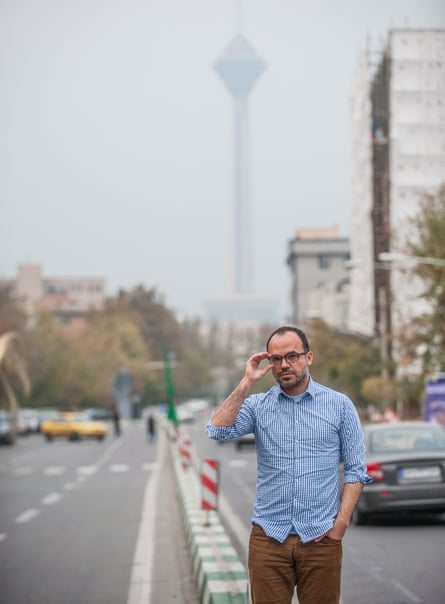
Nearly every social network now treats a link as just the same as it treats any other object – the same as a photo, or a piece of text. You’re encouraged to post one single hyperlink and expose it to a quasi-democratic process of liking and plussing and hearting. But links are not objects, they are relations between objects. This objectivisation has stripped hyperlinks of their immense powers.
At the same time, these social networks tend to treat native text and pictures – things that are directly posted to them – with a lot more respect. One photographer friend explained to me how the images he uploads directly to Facebook receive many more likes than when he uploads them elsewhere and shares the link on Facebook.
Some networks, like Twitter, treat hyperlinks a little better. Others are far more paranoid. Instagram – owned by Facebook – doesn’t allow its audiences to leave whatsoever. You can put up a web address alongside your photos, but it won’t go anywhere. Lots of people start their daily online routine in these cul-de-sacs of social media, and their journeys end there. Many don’t even realise they are using the internet’s infrastructure when they like an Instagram photograph or leave a comment on a friend’s Facebook video. It’s just an app.
But hyperlinks aren’t just the skeleton of the web: they are its eyes, a path to its soul. And a blind webpage, one without hyperlinks, can’t look or gaze at another webpage – and this has serious consequences for the dynamics of power on the web.
More or less all theorists have thought of gaze in relation to power, and mostly in a negative sense: the gazer strips the gazed and turns her into a powerless object, devoid of intelligence or agency. But in the world of webpages, gaze functions differently: it is more empowering. When a powerful website – say Google or Facebook – gazes at, or links to, another webpage, it doesn’t just connect it , it brings it into existence; gives it life. Without this empowering gaze, your web page doesn’t breathe. No matter how many links you have placed in a webpage, unless somebody is looking at it, it is actually both dead and blind, and therefore incapable of transferring power to any outside web page.
Apps like Instagram are blind, or almost blind. Their gaze goes inwards, reluctant to transfer any of their vast powers to others, leading them into quiet deaths. The consequence is that web pages outside social media are dying.
Even before I went to jail, though, the power of hyperlinks was being curbed. Its biggest enemy was a philosophy that combined two of the most dominant, and most overrated, values of our times: newness and popularity. (Isn’t this embodied these days by the real-world dominance of young celebrities?) That philosophy is the stream. The stream now dominates the way people receive information on the web. Fewer users are directly checking dedicated webpages, instead getting fed by a never-ending flow of information that’s picked for them by complex and secretive algorithms.
The stream means you don’t need to open so many websites any more. You don’t need numerous tabs. You don’t even need a web browser. You open the Facebook app on your smartphone and dive in. The mountain has come to you. Algorithms have picked everything for you. According to what you or your friends have read or seen before, they predict what you might like to see. It feels great not to waste time in finding interesting things on so many websites. But what are we exchanging for efficiency?
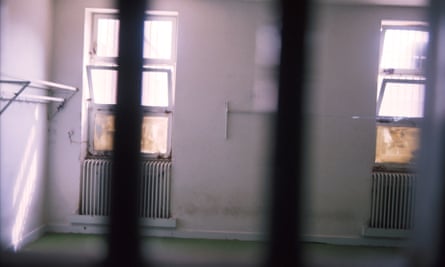
In many apps, the votes we cast – the likes, the plusses, the stars, the hearts – are actually more related to cute avatars and celebrity status than to the substance of what’s posted. A most brilliant paragraph by some ordinary-looking person can be left outside the stream, while the silly ramblings of a celebrity gain instant internet presence. And not only do the algorithms behind the stream equate newness and popularity with importance, they also tend to show us more of what we have already liked. These services carefully scan our behaviour and delicately tailor our news feeds with posts, pictures and videos that they think we would most likely want to see.
Popularity is not wrong in and of itself, but it has its own perils. In a free-market economy, low-quality goods with the wrong prices are doomed to failure. Nobody gets upset when a quiet Hackney cafe with bad lattes and rude servers goes out of business. But political or religious opinions are not the same as material goods or services. They won’t disappear if they are unpopular or even wrong. In fact, history has proven that most big ideas (and many bad ones) have been quite unpopular for a long time, and their marginal status has only strengthened them. Minority views are radicalised when they can’t be heard or engaged with. That’s how Isis is recruiting and growing. The stream suppresses other types of unconventional ideas too, with its reliance on our habits.
Today the stream is digital media’s dominant form of organising information. It’s in every social network and mobile application. Since I gained my freedom, everywhere I turn I see the stream. I guess it won’t be too long before we see news websites organise their entire content based on the same principles. The prominence of the stream today doesn’t just make vast chunks of the internet biased against quality – it also means a deep betrayal to the diversity that the world wide web had originally envisioned.
The centralisation of information also worries me because it makes it easier for things to disappear. After my arrest, my hosting service closed my account, because I wasn’t able to pay its monthly fee. But at least I had a backup of all my posts in a database on my own web server. But what if my account on Facebook or Twitter is shut down for any reason? Those services themselves may not die any time soon, but it is not too difficult to imagine a day when many American services shut down the accounts of anyone from Iran, as a result of the current regime of sanctions. If that happened, I might be able to download my posts in some of them, and let’s assume the backup can be easily imported into another platform. But what about the unique web address for my social network profile? Would I be able to claim it back later, after somebody else has possessed it?
But the scariest outcome of the centralisation of information in the age of social networks is something else: it is making us all much less powerful in relation to governments and corporations. Surveillance is increasingly imposed on civilised lives, and it gets worse as time goes by. The only way to stay outside of this vast apparatus of surveillance might be to go into a cave and sleep, even if you can’t make it 300 years.
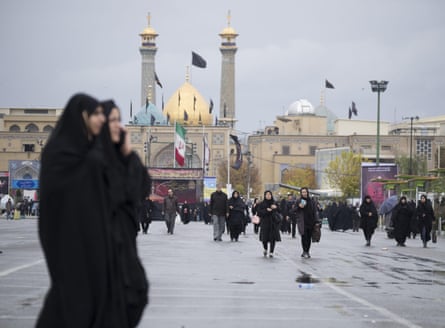
Ironically enough, states that cooperate with Facebook and Twitter know much more about their citizens than those, like Iran, where the state has a tight grip on the internet but does not have legal access to social media companies. What is more frightening than being merely watched, though, is being controlled. When Facebook can know us better than our parents with only 150 likes, and better than our spouses with 300 likes, the world appears quite predictable, both for governments and for businesses. And predictability means control.
Middle-class Iranians, like most people in the world, are obsessed with new trends. Since 2014 the hype is all about Instagram. There’s less and less text on social networks, and more and more video, more and more images, still or moving, to watch. Are we witnessing a decline of reading on the web in favour of watching and listening? The web started out by imitating books and for many years, it was heavily dominated by text, by hypertext. Search engines such as Google put huge value on these things, and entire companies – entire monopolies – were built off the back of them. But as the number of image scanners and digital photos and video cameras grows exponentially, this seems to be changing. Search tools are starting to add advanced image recognition algorithms; advertising money is flowing there.
The stream, mobile applications, and moving images all show a departure from a books-internet toward a television-internet. We seem to have gone from a non-linear mode of communication – nodes and networks and links – toward one that is linear, passive, programmed and inward-looking.
When I log on to Facebook, my personal television starts. All I need to do is to scroll: New profile pictures by friends, short bits of opinion on current affairs, links to new stories with short captions, advertising, and of course self-playing videos. I occasionally click on the like or share button, read peoples’ comments or leave one, or open an article. But I remain inside Facebook, and it continues to broadcast what I might like. This is not the web I knew when I went to jail. This is not the future of the web. This future is television.
Soon the internet will be a collection of mobile apps rather than of websites. And the money these apps generate will be out of monthly subscription, instead of advertising – something like cable television with its various theme-based packages, and its primetime. (Already if you want to post anything to a social network, you have to do it early morning or late night, when most people are using the app.)
Sometimes I think maybe I’m becoming too strict as I age. Maybe this is all a natural evolution of a technology. But I can’t close my eyes to what’s happening: a loss of intellectual power and diversity. In the past, the web was powerful and serious enough to land me in jail. Today it feels like little more than entertainment. So much that even Iran doesn’t take some – Instagram, for instance – serious enough to block.
I miss when people took time to be exposed to opinions other than their own, and bothered to read more than a paragraph or 140 characters. I miss the days when I could write something on my own blog, publish on my own domain, without taking an equal time to promote it on numerous social networks; when nobody cared about likes and reshares, and best time to post.
That’s the web I remember before jail. That’s the web we have to save.





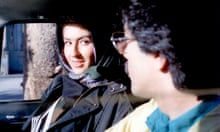

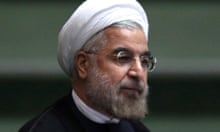
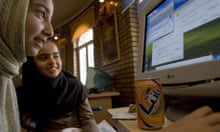
Comments (…)
Sign in or create your Guardian account to join the discussion